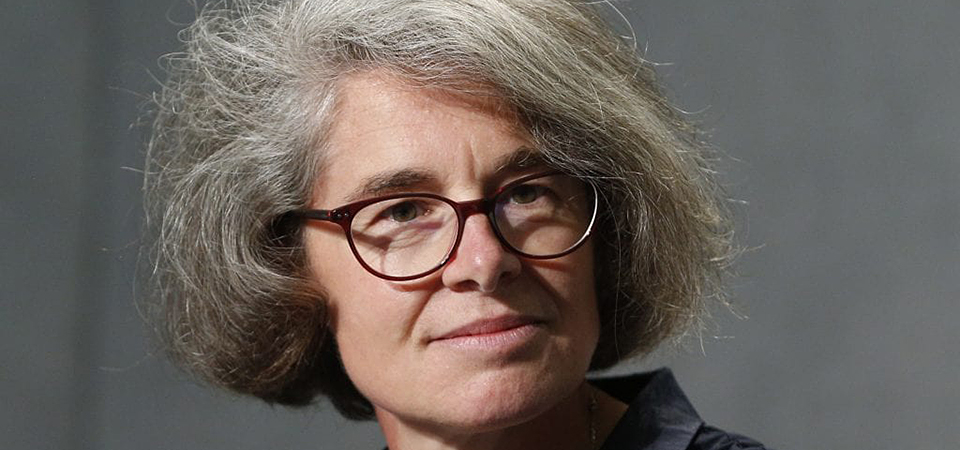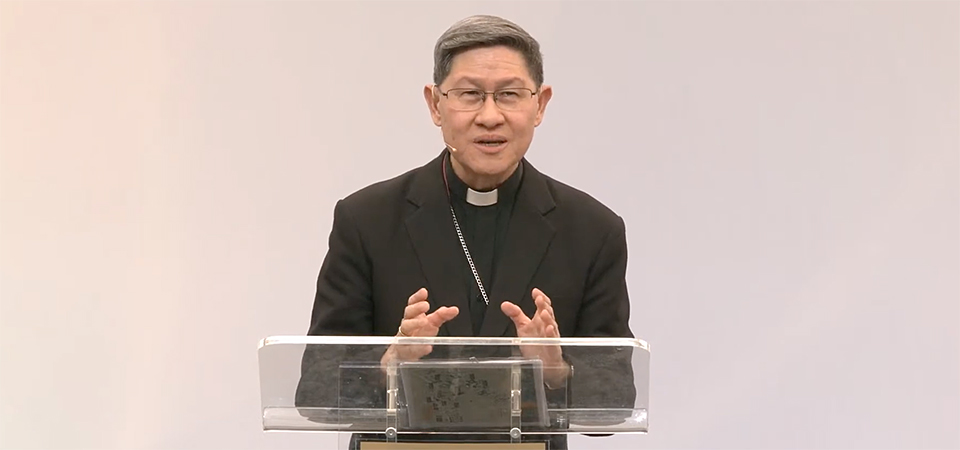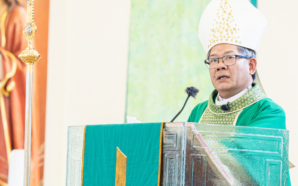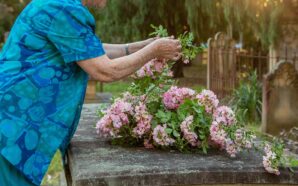The third of four reports from the Vatican by Brother Mark O’Connor FMS, Vicar for Communications, Diocese of Parramatta and Pope Francis Fellow, Newman College, University of Melbourne.
Most of the international Cardinals have now departed Rome, after last week’s fascinating Consistory. Some further analyses on the significance of their meetings are well worth your reading.
See: Christopher Lamb https://catholicoutlook.org/vatican-reform-the-fires-are-reinvigorated/ and Austen Ivereigh https://www.commonwealmagazine.org/power-serve
But where to now? What possible issues should concern the pilgrim people of God, as we navigate the next stage of the path of Synodality, through the next stage of continental meetings leading to the October 2023 Global Synod? See especially for much enlightenment about the whole process: https://www.synod.va/en/highlights/the-continental-stage-resources.html and https://www.ncronline.org/news/opinion/synodal-process-cultivates-sense-spirituality-and-wonder
Certainly, Pope Francis’ Synod on Synodality, which will take place in October 2023, is not without risk! It may succeed in bringing greater unity to the church, or it could result in greater conflict and division!
And yet Francis has consistently encouraged the members of such synods to “speak boldly” and not worry about how people reacted to their words. It is hard to overestimate how extraordinary this is.
In recent past, papacies it was ‘progressives’ who were thought of as not loyal enough to the Pope. All this changed under Francis. Suddenly, ‘conservatives’ saw a papacy doing things they did not like, even saying they considered Pope Francis as ‘unorthodox’. Ironically, those who had prided themselves on loyalty to the papacy suddenly began attacking it. They proved loyal only when the papacy agreed with them. ‘Cafeteria’ Catholicism indeed…
Amidst all this tension, Francis simply encourages us all to humbly participate in the experience of prayer, listening and discernment as a way forward for the people of God.
Tom Reese SJ, whilst hopeful about the synod, is also worried. He recently asked: Will the synodal process work? Will it help heal divisions in the church and foster a community that can spread the gospel, care for the marginalized and heal the Earth? Or will it blow up and show the world how divided we Catholics are? (https://religionnews.com/2022/09/06/pope-francis-big-gamble-the-synod-on-synodality/)
Last week, in Rome, I put that very question to two authentic Gospel witnesses. Both are leaders, in their own ways, in the Synodal path.
Sr. Nathalie Becquart X.M.C.J, is the Under-Secretary of the General Secretariat of the Synod. Sr Nathalie, a French religious, is the first woman to hold such a position.

Xaviere Missionary Sister Nathalie Becquart attends a news conference to discuss the Synod of Bishops on young people, the faith and vocational discernment at the Vatican Oct. 9. Image: CNS/Crux.
Sr Nathalie, in conversation, placed great trust that the Spirit was very much alive all over the world and inspiring many different grassroots groups to participate in the Synodal process. Sr Nathalie particularly pointed out that even local churches in great difficulty, like that of Myanmar, are contributing greatly. She recognises that, of course, there are tensions and difficulties but remains confident that the Spirit will continue to pour out graces as the Synod progresses.
In the early months of 2023, Sr Nathalie will likely visit Australia to talk about Synodal spirituality and engage in dialogue. I will keep you informed about the dates and events as they are finalised in the next few months.
To learn more about Sr Nathalie and her pivotal role in the Synodal process see the following links:
https://international.la-croix.com/news/religion/nathalie-becquart-explains-synodality/14689
Cardinal Luis Antonio Tagle, is a Filipino Bishop currently serving as the Pro-Prefect for the Section of Evangelization of Dicastery for Evangelization (He was the 32nd Archbishop of Manila from 2011 to 2019). Tagle also serves as the President of Caritas Internationalis.

A screenshot of Cardinal Luis Antonio Tagle speaking during the Anglican Communion’s 15th Lambeth Conference at the University of Kent, England, on Saturday 6 August. Image: Anglican Communion/YouTube
Like Sr Nathalie, in conversation with Cardinal Tagle, it was clear he is a pastor who lives out Pope Francis’s pastoral vision of accompaniment. As he said in a recent interview:
The synodal process is an invitation for us to walk together, to journey together. There is a walking that St. Joseph shows us. He walked dangerous paths with Mary and Jesus, guided by the direction of the angel of God. It is a walking that means protection, that means caring. We hope that during the synodal process, we may develop this capacity to love Jesus, to love the Church. And even if we have some observations that are not always positive, we must do so out of caring, out of loving, so that the name of Jesus will be proclaimed and preserved.
The short video of Cardinal Tagle’s recent touching talk to the world’s Anglican bishops at Lambeth is well worth watching. It exemplifies everything we need to know about a pastor who ‘walks’ together’ with his flock and reaches out to those lost on the margins.
It is heartening to see such fine people involved in this crucial process for the health of our church.
CONCLUSION
Listening and learning from so many ‘voices’ here in Rome – I have been reflecting on what the wider Church might learn from us! Our recent Australian experience of Synodality, which culminated at the July 2022 Plenary Council held in Sydney was such a Spirit-filled and graced moment.
From my limited perspective, some key learnings and challenges are perhaps worth noting:
1. One ongoing key learning and challenge for us all will be how we continue to negotiate the issue of language and communication. For what about that very word Synodality, of which we hear so much these days, in church-speak? To be honest, it’s hard to get excited about the word itself, synodality per se! As an English expression, I am not sure it immediately interests many ordinary Catholics in the pews…However, what this venerable concept from the depths of our Catholic Tradition means is actually very important for our future as the people of God. It’s crucial we continue to communicate to ordinary Catholics what’s at stake when we use it. And when we use the term, we need to ‘unpack’ it….For Pope Francis recently explained in Canada to his brother Jesuits (https://www.vaticannews.va/en/pope/news/2022-08/pope-francis-conversation-with-canada-jesuits.html)
Synodality for Francis, “does not refer to “a political meeting,” nor “a committee for parliamentary decisions.” Rather, it “means walking together, for if you want to go fast, go alone; if instead you want to go surely, go together.’
Ongoing catechesis to show ordinary Catholics the richness of what we really mean by synodality in the daily life of disciples is critical.
2. Our recent experience of the Plenary Council was a marvellous example of many Australian Catholics ‘walking together’. However, another key learning and challenge will be to develop our ongoing dialogues and encounters – without forgetting that the Spirit has been speaking to us powerfully through the voices of pain.
At the back of our consciousness, we must keep alive the memory of the searing pain of many of the people of God as they discovered the scandalous revelations of clerical and religious child sexual abuse and the failures of church leadership to deal with it properly. In Australia, Canada, USA, Chile, Ireland, the U.K. and many, many other counties, lay people’s pain was raw and their alienation intense. Our plenary council largely arose (as did the German Synodal process) out of this pain. We must continue to follow the pain-lines and recall the prophetic words of Enda McDonagh: “Following the Spirit means following the pain-lines to join the powerless in the Spirit’s creative and redemptive work”.
3. However pressing the critical ‘ad extra’ issues of defending life, religious freedom, the environment, war and peace, indigenous rights, migrants and refugees et al may be – our own credibility as followers of Christ is flawed if we are not authentic humble servants of each other. Our future inner ecclesial structures for ministry must give us greater freedom to be of Gospel service and not to dominate others through the exercise of worldly power.
Our Plenary Council was very much an experience founded on the Vatican II-based conviction, that since lay people – especially women – make up the majority of the Church in Australia, we need to continue to ensure there are practical structures to make their voices count at every level of our Church. The struggle to overcome clericalism and enhance participation in the church’s mission is ongoing.
Certainly, no one disputes that we believe in a Church that is One, Holy, Catholic and Apostolic. However, Canon Law and the Magisterium’s teachings are not frozen, and have developed many, many times in the history of the Church. There can be legitimate developments in many areas, in the spirit of St John Henry Newman, which are thoroughly compatible with orthodoxy.
The Church is, of course, not a democracy. But neither is it a dictatorship – not even a benevolent dictatorship?!
4. Sadly, the Australian Plenary Council also demonstrated that not all Australian Catholics do in fact want to ‘walk together’ under the leadership of Pope Francis. Navigating in a Christian spirit the oppositional forces (albeit a minority but well organised and financed) to the leadership of Pope Francis and his call for synodality and the full implementation of Vatican II is an ongoing challenge that must be honestly faced.
The more ‘progressive’ in the church perhaps also need to listen more deeply and be challenged by what ‘the Spirit is saying’ to all the Churches. For example, the German Synodal process strongly and credibly articulates its concerns. But is it really listening well enough to other local churches? Time will tell. All told, one does get the impression that some ‘progressive’ voices in the synodal process need to practice less of a ‘hermeneutic of suspicion’. Understandably, their trust in the institutional church especially bishops has been badly damaged. Nonetheless, a ‘hermeneutic of affirmation’ is also needed. A mentality which refuses to see the many positive active signs of the Spirit does no one any good.
The real challenge ahead, however, in my opinion, comes from a small elitist group of conservative Catholics who are hell-bent in their opposition to the pastoral reforms of Pope Francis. They are fuelled and supported by certain sections of the Catholic Press who indulge in tabloid journalism against anyone who dares to disagree with them. We saw this dis-edifying behaviour at our Plenary Council. I pray it was not a chilling prequel of how such people will be allowed to engage in ‘agitprop’ at the coming Synod on Synodality in Rome in October 2023 – and repeat the disgraceful performance of the Trumpian agents of chaos and fake news, like the well-funded EWTN at the Amazon Synod
5. As we ‘walk together’ as the pilgrim people of God, let’s continue to help people form a mature adult Catholic faith that will sustain them in these difficult times.
As Bernard Lonergan often pointed out – people today are led and only changed by insights. They must well up from within; they can never be imposed.
Yes, we do have a beautiful treasure in our Catholic faith. Divine Revelation goes on. The Spirit keeps teaching us through the Word of God; our profound Catholic Tradition especially the Sacraments and the “signs of the times”. This treasure, however, cannot just simply be imposed by external authority, in a culture such as ours.
We can never go back to a Christendom model: where the Church simply commands and decrees. Those days are gone forever.
This is our common task as we ‘walk together‘ to the 2023 Synod on Synodality. It will certainly not be the last moment on the journey of the People of God. Even the 2023 Synod is but the beginning of a much longer process. It’s yet another step on a long journey. But it is a momentous one for our church led by the Vicar of Christ today, Pope Francis.
In my last ‘sounding’ from Rome, I will explore a key challenge as we journey onwards, ‘walking together’ in faith. We are all called and gifted to reach out to people ‘who are seeking and not without suffering, something or someone whom they sense but cannot name’. (Paul VI).
In that fourth report from Rome, I introduce the thought of Cardinal José Tolentino de Mendonça, Archivist and Librarian of the Holy Roman Church and Fr Tomas Halik of Prague, as eminently reliable guides for that Gospel mission.
Br Mark O’Connor FMS is the Vicar for Communications, Diocese of Parramatta and Pope Francis Fellow, Newman College, University of Melbourne.
With special thanks to the PAYCE Foundation for their sponsorship of the Pope Francis Fellowship at Newman College and these ‘Soundings’ from Rome.








